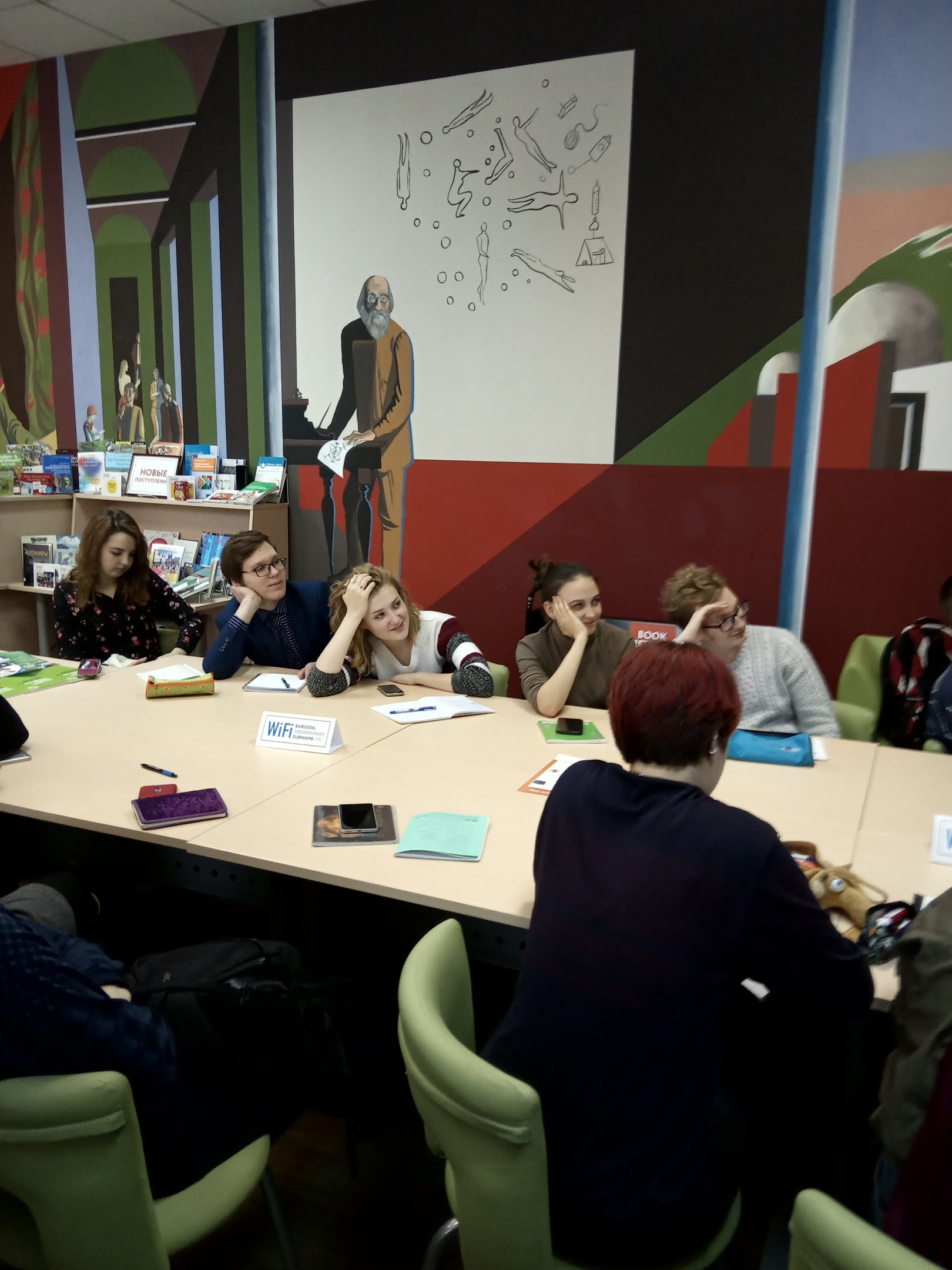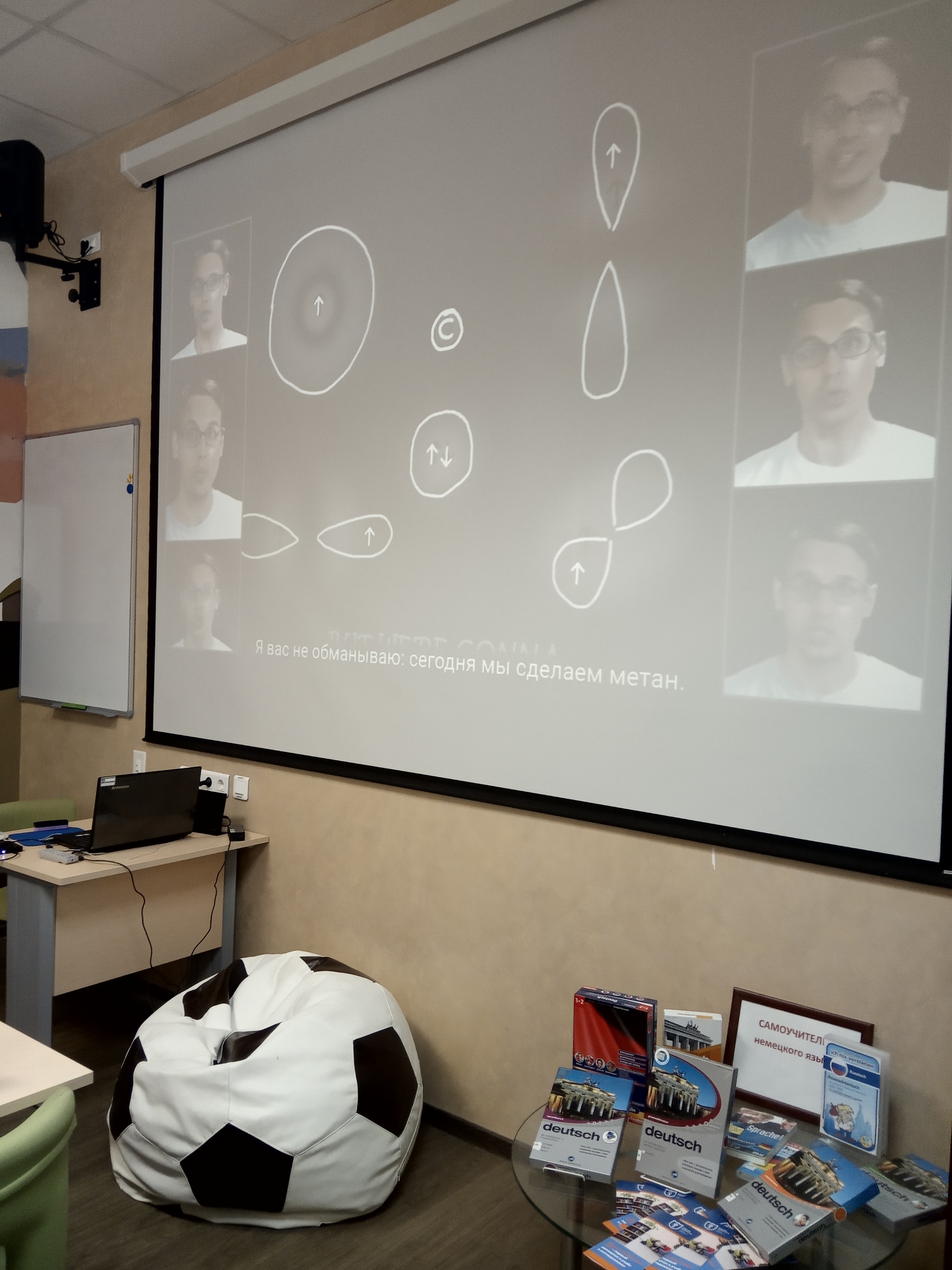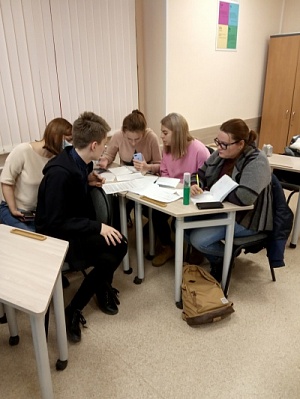The students of the Chemistry Department who are participating in the project “Development of foreign language competence of TSU students” became involved in two the workshops of organized by their teacher of English – Ass. Prof. Nadezhda Petrunina.
The first workshop had the traditional form of a minilecture, which was carried out by Yulia Povesma, the Chemistry master programme student. The second-year students, who study analytical chemistry in both Russian and English, followed Yulia’s talk about the principle of chromatography, one of the most frequent and effective methods of chemical analysis. After that, she asked a number of questions and helped students to do several matching exercises. At the very end of the class, the students watched a video and added some interesting professional terms to their vocabulary ‘piggy bank.’
Yulia Razgulyaeva, group 08701b: It was an educational event. We learned more about the new method of analyzing substances. Thank you!
The second workshop was of an experimental nature. The assignment given by the teacher implied finding several songs with chemistry-related names such as entropy, aliquot, or just chemistry. Then the students were expected to interpret the message of the song relying on their own aesthetic perception or/and on the interviews with members of a particular band and to draw a conclusion on why this or that chemical image was employed and what kind of informative or symbolic function it performs.

Despite its experimental and creative nature, this workshop appeared to be a great success: the guys were happy to bring from two to five songs with a detailed analysis; they shared new vocabulary items including idioms and participated in the translation marathon using new words. Certainly, they also could not do without singing songs along with the teacher.
Nadezhda Petrunina, a project group member: I dare say that this was one of the best lessons in the entire history of the language project. Chemistry, English language, and the peculiar beauty of modern mass music were surprisingly intertwined. I completely ignored the timeflow and experienced a huge variety of emotions while listening to my students. The world of contemporary art is synergistic and often refers to the images from sci-tech world. Watching chemists explain the images from their professional angle is a fascinating thing. Thanks to the German Hall of the TSU Research Library for the space provided and the general atmosphere!
Natalia Shelemetieva, group 08801b: That was a great way to study special concepts used directly in context by a native speaker. The combination of listening and visual perception channels facilitates comprehending and memorization. This form of working with chemical terms makes their further usage much easier. From my point of view, it is one of the best ways to expand a difficult-to-remember chemical vocabulary.
Maxim Zagvozkin, group 08801b: I enjoyed the whole class. It is interesting to learn various new phrases that have a double meaning – both academic and everyday ones. I learned more about the field of chemistry, and I spent time in a cozy atmosphere!
Valeria Sitnikova, group 08801b: Using English songs is a great way to learn a language. That way, the meaning of words and their pronunciation are more easily remembere. Especially when it comes to complex chemical terms! In addition, listening to songs improves the understanding of English vocabulary.
Alisa Pershakova, group 08801b: The search for the songs with chemistry-related names is a great idea that helped to learn not only many beautiful songs, but also many interesting idioms and words! Besides, we got to know each other better in terms of our preferences in music. I would love to repeat this again.
Maria Monakhova, group 08801b: I really liked this tutorial. It was not only fun, but also informative. Phrases and terms are remembered much faster thanks to the associations that everyone had while watching a video or listening to a song. Such an approach to learning makes it enjoyable.
Ksenia Kazantseva, group 08801b: It is a wonderful experience. You do not only practice English, but also enjoy beautiful high-quality music. Searching for songs turned out to be quite fascinating being linked to the search for the song history or the information about its authors.


